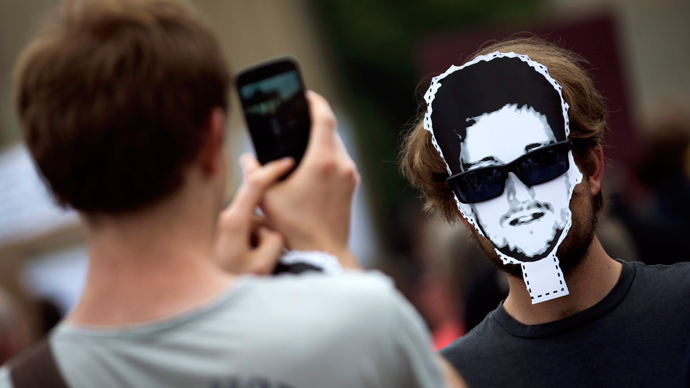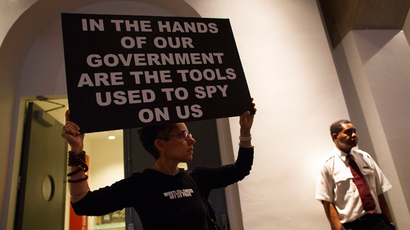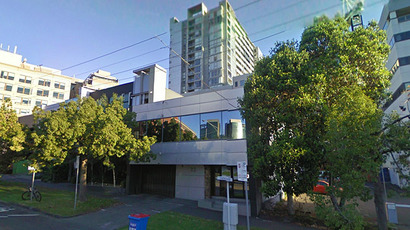Snowden confirms NSA created Stuxnet with Israeli aid

The Stuxnet virus that decimated Iranian nuclear facilities was created by the NSA and co-written by Israel, Edward Snowden has confirmed. The whistleblower added the NSA has a web of foreign partners who pay “marginal attention to human rights.”
In an interview with Jacob Applebaum published in German daily Der Spiegel on Monday, Snowden stated that the US and Israel were behind the computer worm. Stuxnet infiltrated Iranian nuclear facility networks in 2009-2010 and was used to change the speed of thousands of gas-spinning centrifuges, sabotaging nuclear research.
Washington and Tel Aviv were thought to have been behind the cyber-attack, however, this was never confirmed by either government.
“The NSA and Israel wrote Stuxnet together,” Snowden told Applebaum in the interview that was carried out in May.
Snowden stressed that the National Security Agency (NSA) often cooperates with foreign partners through a special body known as the Foreign Affairs Directorate (FAD). Referring to Britain, Australia, New Zealand and Canada, also known as the ‘Five Eye Partners,’ he said their practices often go further than those of the NSA.
In particular he flagged the system used by the UK’s General Communications Headquarters (GCHQ), TEMPORA as one of the worst offenders.
“TEMPORA is the signals intelligence community's first ‘full-take’ internet buffer that doesn't care about content type and pays only marginal attention to the Human Rights Act,” said Snowden.
The UK buffer is able to hold a vast quantity of internet data for up to three days, said the whistleblower.
“You should never send information over British lines or British servers. Even the Queen’s ‘selfies’ with her lifeguards would be recorded, if they existed.”
While Snowden conceded that monitoring abroad had its limits and the NSA has to prioritize the information it collects, he stressed that monitoring on its own territory was “practically limitless.”
Private enterprise is also involved in the NSA’s mass collating of internet data, but proving their complicity is very difficult.
“The names of the cooperating telecom companies are the crown jewels of the NSA... Generally you can say that multinationals with headquarters in the USA should not be trusted until they prove otherwise,” Snowden pointed out.
When asked about how one could avoid falling into the traps of NSA surveillance, Snowden said anyone who had been targeted “was just owned.” The analyst charged with following an individual receives a report every day, meaning the “target's machine doesn't belong to them anymore, it belongs to the US government.”
Cypherpunks
Snowden’s interviewer, 30-year-old Jacob Applebaum, has also fallen foul of US law enforcement in the past. Applebaum co-wrote a book with WikiLeaks founder Julian Assange detailing tips on how to evade cyber-surveillance while surfing the web.
The book called ‘Cypherpunks: Freedom and the Future of the Internet’, was also co-written by Jeremie Zimmermann and Andy Muller-Maguhn. Assange invited his co-authors on to the Julian Assange show, which aired on RT last year in March, to discuss cyber resistance.
“Two of them, besides myself, have been targeted by law enforcement agencies as a result of their work to safeguard privacy and to keep governments accountable. Their words, and their stories, need to be heard,” Assange told the New York Times.
The members of the Cypherpunks movement shared their stories with Julian Assange whilst sitting down to discuss the problems of privacy, online communication and freedom on the internet.
US citizen Edward Snowden is believed to be eluding an extradition order to the US on charges of espionage in the transit zone of Moscow’s Sheremetyevo Airport. Snowden has sent a number of applications for political asylum. Thus far Venezuela and Nicaragua have confirmed receipt of the applications, but are yet to grant asylum. However, Snowden is still unable to travel as his passport has been voided by the US authorities.














